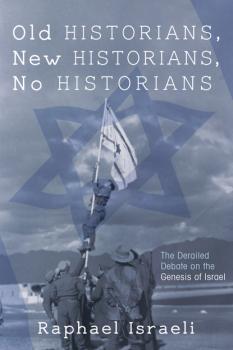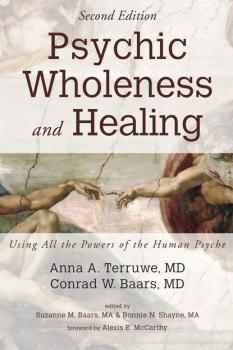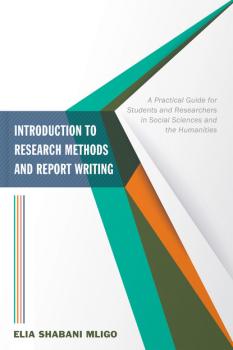MREADZ.COM - много разных книг на любой вкус
Скачивание или чтение онлайн электронных книг.Jacques Ellul on Violence, Resistance, and War
The last few decades seem to have ushered in new levels of violence, challenging the notion that our globalized, interconnected world offers increased prospects for cooperation and peace. Many philosophers and theologians have offered various reasons for why this might be so, but none has come so close as the French philosopher Jacques Ellul to providing a comprehensive explanation for many of the pitfalls inherent in increasing levels of technological advance. The chapters in this book explore the phenomena of violence, terrorism, and war through the lens of Ellul's thought. Readers unfamiliar with Ellul will find as much to consider in these chapters as those who have studied Ellul extensively, and for both the novice and the expert, this book offers an opportunity to both evaluate and reevaluate Ellul's extensive thought on matters of importance to contemporary society.
Q, the First Writing about Jesus
This book shows readers the formation of Q by exploring how the texts were subjected to redaction four times. As author Yoseop Ra demonstrates, the first redaction of Q conveys the words and deeds of the historical Jesus and then the rest of redactors imposed their own theological interpretation to the words and deeds of Jesus. His argument will provide readers with a fresh look on how the earliest «Jesus movement» was formed in the thirties of the first century CE. Q is a hypothetical document extracted from the common source between Matthew and Luke. Thus, it is not easy to distinguish the different layers of redaction embedded in Q. However, form critical, redaction critical, composition critical, and socio-historical approaches to it makes readers separate the four layers of redaction from Q. Each layer will show how the disciples of Jesus moved from the countryside to Jerusalem via some rural cities expanding their boundary.
Old Historians, New Historians, No Historians
This polemical volume tackles the thorny and controversial issue of the vastly different narratives told (or manufactured) by the two parties of the conflict in the Middle East (the Arabs and Israel), focusing on 1948, where it all started. While all sides in this debate have vested interests, this author included, an attempt has been made here to reflect the factual truth on the events, although their interpretation will always remain controversial. Although the book argues principally with Benny Morris, the founder and leader of the so-called New Historians, it encompasses a wide array of controversial topics, like the evaluation of the 1948-49 War, the morality of the war (or the necessity to wage it as it was), and its main reverberations, such as the continuing conflict after seven decades, the aggravation of the Palestinian minority in Israel, and the essence of what history means. Israeli argues that the current debate between the so-called Old Historians and the New Historians–itself healthy if and when it is kept to the point and not allowed to degrade into personal libel and recriminations–is not really as unbridgeable as is often claimed. Both sides have erred at points and both sides have some important and complementary light to shed on the contentious events surrounding the birth of Israel.
The Crisis of Evangelical Christianity
In the broad context of Christianity as it developed over two millennia, and with special reference to the last three centuries, this discussion finds that Evangelicalism has repeatedly offered a reduced and distorted understanding of the faith. The evangelical outlook is much less scriptural than evangelicals generally assume. When it comes to appreciating the order of creation, our calling to develop integral Christian thinking and living, the religious significance of culture, and the coming of the kingdom, reductionist Evangelicalism struggles with its only rarely acknowledged deficiencies. As a result, we have all too often ended up with a Christianity shorn of its cosmic scope and wide cultural implications, and restricted to institutional church life and the cultivation of private spiritual experience. The consequences are frequently enervating and corrosive. Without disregarding what is important in the past, evangelicals are here challenged to take the Bible much more seriously, and thereby transcend the limitations of their habitual reductionism. Evangelicals are encouraged to embrace an integral and full-orbed understanding of Christian discipleship that will equip the faithful to address the deep and complex challenges of the twenty-first century.
The Disciple
As strange as it might seem to moderns, God is present, Jesus did walk amongst us, and miracles still occur. If you have ever wondered what it was like to live at the time of Jesus, prepare yourself, you are about to live it through the eyes of someone who was there.
On a hot California afternoon, Ronald Way was struck by a blinding light. In that light, Jesus appeared and asked if he would give up everything and move away to write a story about a memory that would be awakened from within. That journey sent him halfway around the world to the Holy City of Jerusalem and then to the banks of the Nile. There he was confronted by a vision that sent him tumbling back 2,000 years to the time of Jesus of Galilee. Then, in the body of the old man named Asher ben Ammi, he was to sit on the roof of his home looking down on the Temple to pen the first gospel ever written about the man he considered to be his friend and the Messiah, Jeshua ben Joseph – Jesus.
For two thousand years the contents of that manuscript have remained hidden–until now. Here then is the story of Asher ben Ammi–The Disciple.
Join the author on a journey back in time as he shares his remembrances of a life long gone, but never forgotten.
Psychic Wholeness and Healing, Second Edition
As noted psychiatrists, authors, and lecturers, Baars and Terruwe excitingly blend medieval and classical notions of the human psyche together with modern clinical discoveries as they probe the topic of psychic wholeness and healing. The authors explore the entire human psyche, including man's spiritual dimension, which is an area totally ignored by most modern psychiatrists–creating in modern man an ever-deepening sense of frustration in searching for effective psychiatric treatment for his emotional turmoil. The books' numerous detailed clinical case histories clarify the authors' therapeutic principles. The following questions, among many others, are considered in this work: How best to help a person who lives in constant fear that he has committed a serious sin even though he knows he has not? Does a person who wants to live a moral life, yet cannot refrain from doing things that he knows are immoral, suffer from weakness of willpower or from a neurosis that would lend itself to therapy?
Building the Human City
Building the Human City is a first overview of the award-winning yet quite diverse works of Jesuit philosopher William F. Lynch. Writing from the 1950s to the mid-1980s, Lynch was among the first to warn against the fierce polarizations prevalent in our culture wars and political life. He called for a transformation of artistic and intellectual sensibilities and imaginations through the healing discernments and critical ironies of an Ignatian (and Socratic) spirituality. Yet the breadth of his concerns (from cinema and literature to mental health and hope to secularization and faith) as well as the depth of his thought (philosophical as much as theological) led to little initial awareness of the overall vision uniting his writings. This book, while exploring that vision, also argues that the spirituality Lynch proposes is more needed today than when he first wrote.
Reading Faithfully, Volume 2
The influence of Hans Frei (1922-1988) is wide and deep in contemporary theology, even though he published little in his own lifetime. These two volumes collect a wide range of his letters, lectures, book reviews, and other items, many of them not previously available in print. Together, they display the range and richness of Frei's thinking, and provide new insights into the nature and implications of his work. They are an invaluable resource for all those interested in Frei's work, and for any interested in his central themes: the development of modern biblical hermeneutics, the interpretation of biblical narrative, and the figural interpretation of all reality in relation to the narrated identity of Jesus Christ.
Lessons from Laodicea
"I'm rich and I don't need a thing," bragged the early Christians in the big city of Laodicea. The Apostle John, however, saw their affluence and arrogance through a theological lens. He declared them to be bankrupt, «lukewarm Christians» whom God would gladly gargle and spit out. Today, the mainline church in the West finds itself in a dominant culture of Laodicean affluence, where even faith is a commodity to be consumed. While the gospel spreads and thrives in the global South and East, the Western mainline church looks longingly back at Christendom and forward in fear. As Christians living in a North American culture that highly prizes the unholy Trinity of individualism, consumerism, and secularism, we require a new kind of missional leadership to «pray» attention to what God is doing in the world around us. This book names the challenges and promises inherent in partnering with the Holy Spirit in order to offer missional leadership in a culture of affluence. It is about both living in Laodicea and leaving it behind. We are no longer in a Babylonian captivity but a Laodicean one. This work helps chart a course for Christians who long to let go of «country club religion» and instead belong to a community that helps equip missionary disciples, resistant to the dominant culture and resplendent in the love of our triune God.
Introduction to Research Methods and Report Writing
This book provides introductory materials on research methods and report writing that aim at guiding students and researchers towards effective research and reporting of their findings. Unlike the many volumes on research that are mostly theoretical, this book originated in the classroom and grew out of the students' own needs to design and conduct satisfactory research in order to meet academic requirements. It is also designed to help experienced researchers in their research ventures. In fulfilling this purpose, the author uses simple, straightforward language. He also provides appropriate examples and illustrations to enable the reader to grasp the basic concepts of research. The book will prove a useful guide for students and researchers in social sciences and humanities who wish to transform research theory into real and feasible research projects.









